
HAS HAVE GOT Language Teaching english grammar, English grammar worksheets, English grammar
The words "got" and "have" both indicate ownership or possession. Use "I have" in formal written English, as contractions are used for conversational speaking. "I got" is the most informal version because it removes the word "have" completely. What Does "I Got" Mean? You say "I got" when you want to indicate that you are in possession of something.

Have got, has got Interactive worksheet Learn english, English grammar worksheets, English
c. 've got. Exercises: 1 2 3. The verb "have got" is common in British English. It is basically used to express possession or in descriptions. In American English, they use the verb "have". Check our complete grammar explanation and do the online exercises. A1-A2 English grammar online.
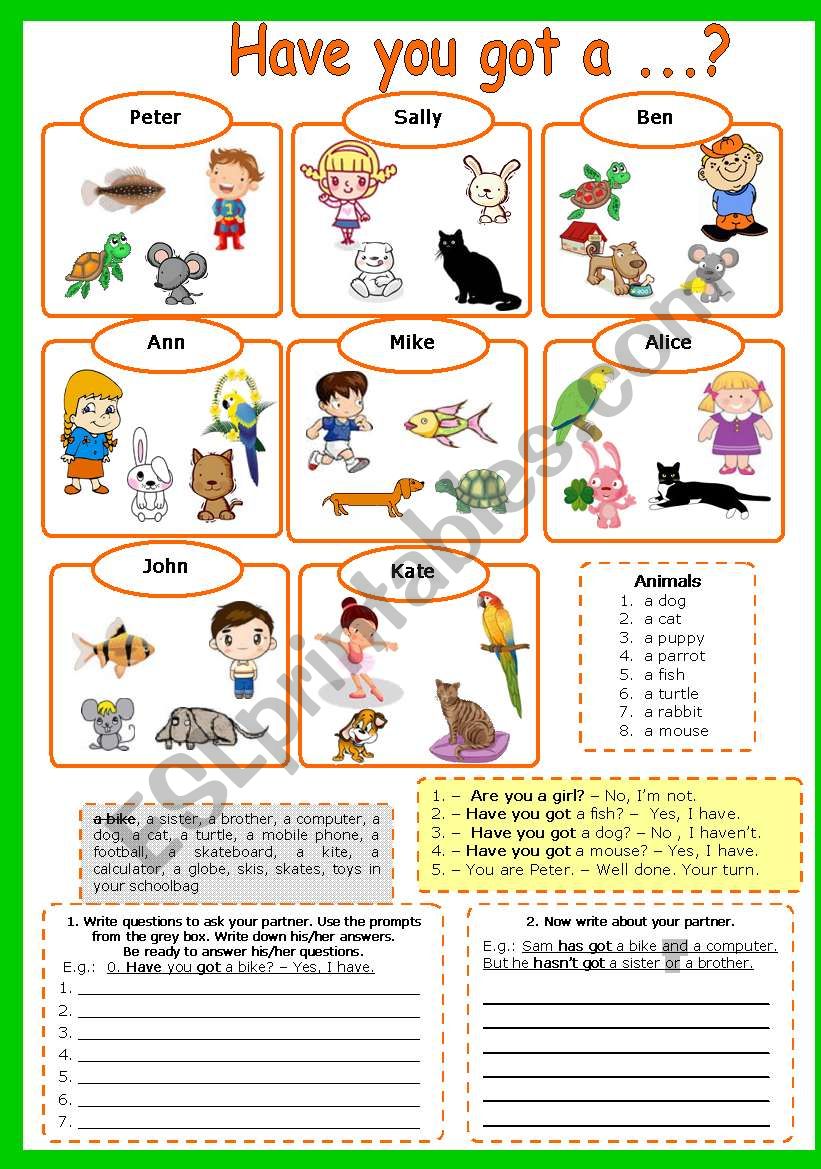
Have Got Has Got English worksheets have got has got Affirmative sentences with have got
Grammar explanation We use I/you/we/they + have got or he/she/it + has got to talk about things that we have. In many situations, have and have got mean the same thing. Have got is a little less formal than have. We often use have got more in speaking and have more in writing. They have got a big garden. = They have a big garden.
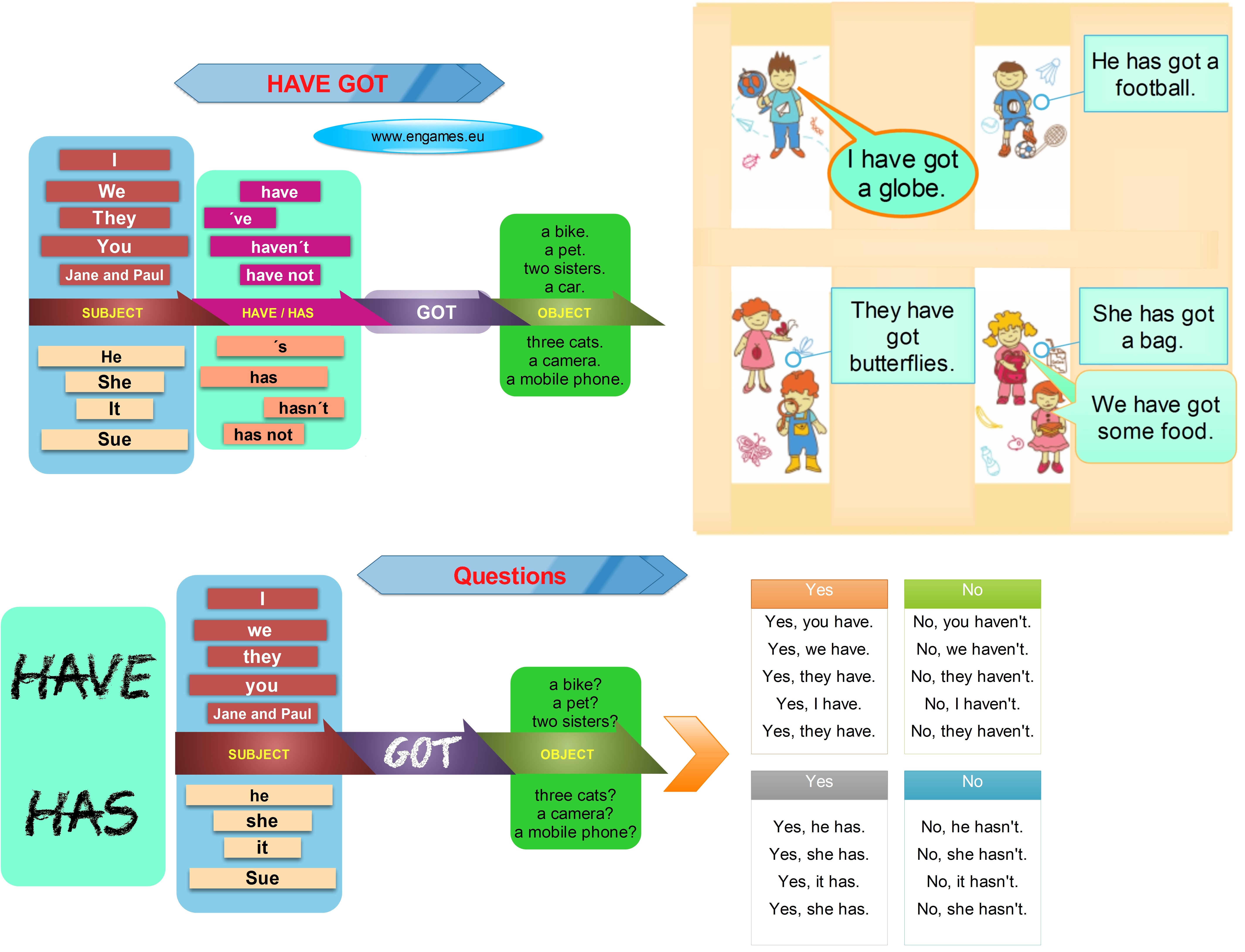
The verb have got Games to learn English Games to learn English
Have Got vs Have Have or Have Got In Positive Forms: There is no difference in their positive form. They both have meaning of "possession". However "have" without "got" is more preferred in American English. We've got a car. (British English) We have a car. (American English) Daniel has got two toys. (British English) Daniel has two toys.
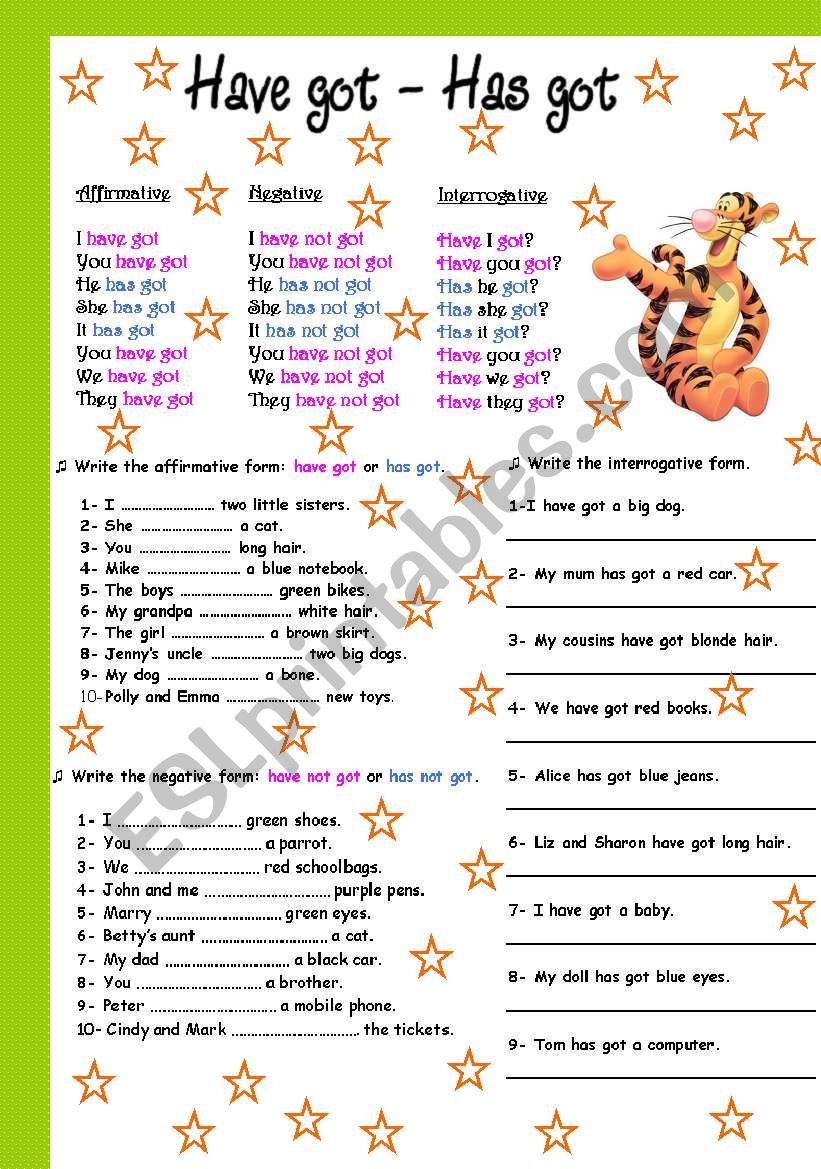
have got has got ESL worksheet by soledad_grosso
'Have' and 'Have got' are only used in the present simple. Use 'have' for the past simple or future forms.Example: She had a copy of that book. There is no contracted form for 'Have' in the positive form. The contracted form is used for 'have got'Example: I have a red bicycle. OR I've got a red bicycle. NOT I've a red bicycle.

Have got or has got general grammar… Français FLE fiches pedagogiques pdf & doc
HAVE GOT - Used in British and American English. In both British and American English, have got means have when it's followed by a noun phrase, and have to ( or must) when it's followed by to + a verb. Below are some examples of each. Some of them include contractions with have/has + got, which are common. HAVE GOT + NOUN = have (more.

Has Got And Have Got Worksheets Pdf Askworksheet
Have got (have/has + got) is used to talk mainly about possessions or personal attributes. Give me some examples, please. Certainly, here you are: I've got a new computer. They haven't got any red chilli peppers. She's got long, brown hair. He hasn't got many friends. So the negative is have/has + not + got? Yes, but don't forget the contraction.

Have Got And Has Got Worksheets For Kids English Tripmart
1. Have got is for spoken English Use have got in spoken English. Use have in your formal written English ( business correspondence, etc.). If you are writing an informal message to your friends—on Facebook, for example— have got is fine. Of course, there is nothing wrong with using have instead of have got in spoken English. 2.
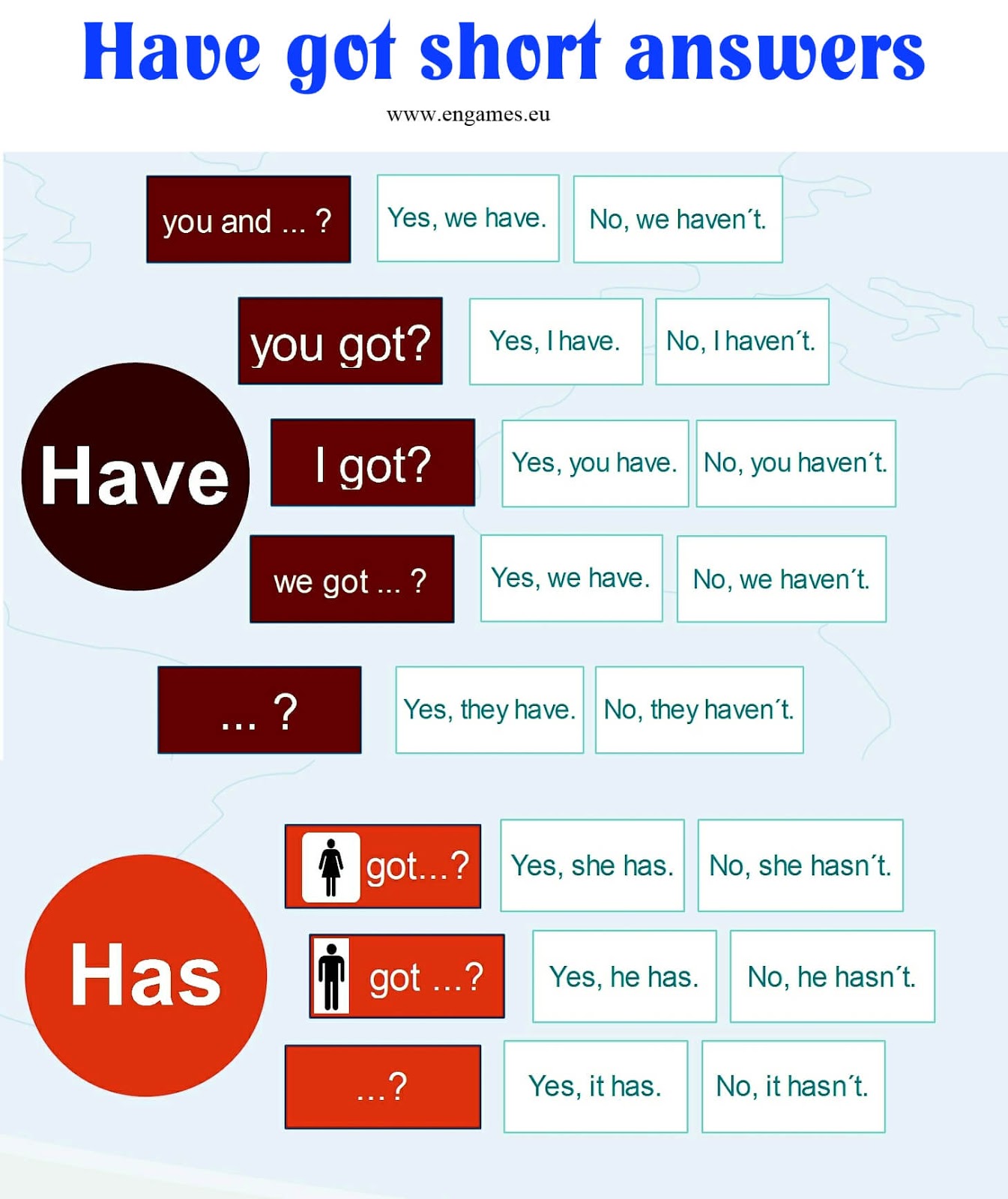
IT SOUNDS GOOD! THE VERB HAVE GOT
The meaning of HAVE GOT is have —used in present tense situations usually in informal writing and in ordinary speech.. How to use have got in a sentence.
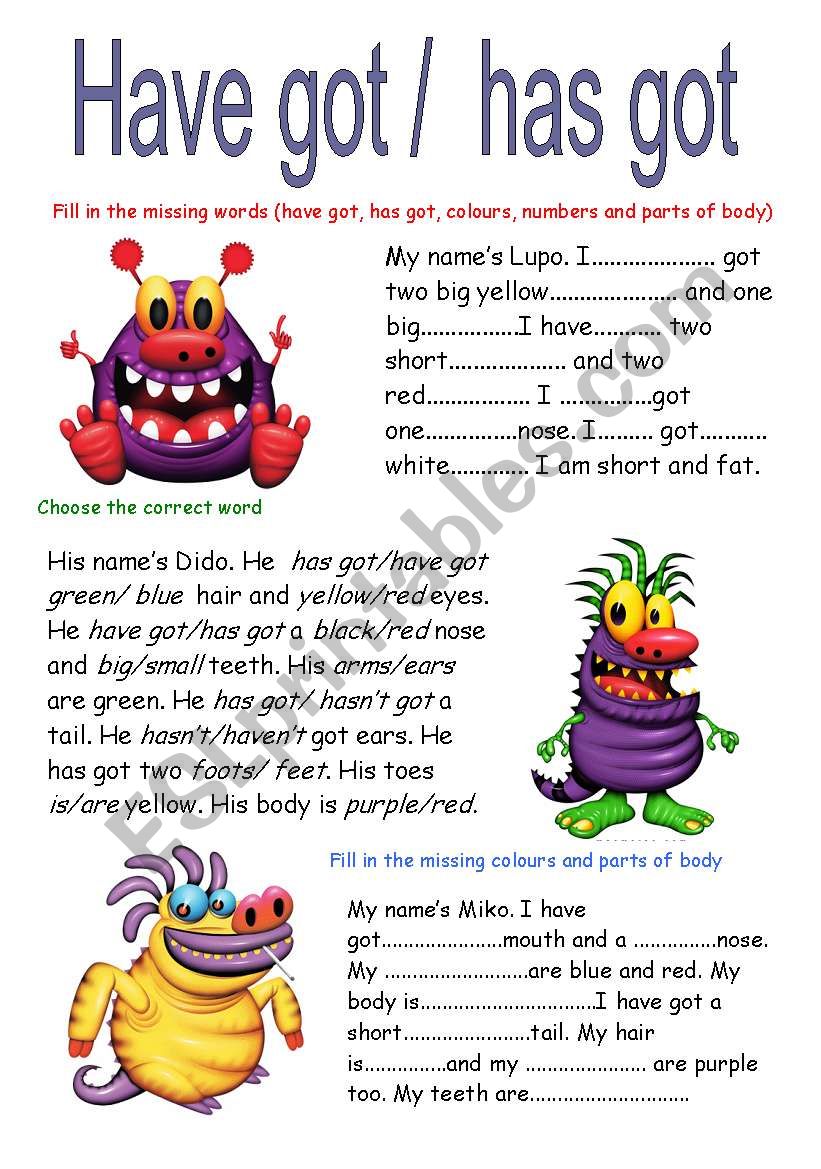
HAVE GOT/ HAS GOT (2 pages) ESL worksheet by kopciuszek
A) To have an opportunity. We use got to (without have) to say that we had an opportunity to do something. For example: The children got to stay up late and watch a movie. (Their parents let them; they gave them this opportunity) George was sick, so he got to go home early. (His boss gave him this opportunity)

Have vs. Have Got Difference Between Have & Have Got • 7ESL
Here's the main difference between have and have got: generally speaking, Have is more common in North America and have got is more common in the United Kingdom. Have got forms are informal, and they're also most common in the present. Keep reading to learn more about the different uses of have and have got . Teaching English Just Got Easier!

Употребление have got в английском языке и его перевод на русский SPEAK ENGLISH
68 I see these two expressions are used almost identically in different contexts. Is there a difference between I have got and I have gotten? word-choice grammar verbs have-got got-gotten Share Improve this question Follow edited Apr 4, 2014 at 13:24 tchrist ♦ 134k 49 370 588 asked Nov 24, 2010 at 14:30 Anderson Silva 11.2k 71 118 149 5

HAS GOT/HAVE GOT worksheet Free ESL printable worksheets made by teachers Grammatica inglese
Have got is more informal. We use have (got) here to refer to both verbs: I've got a terrible pain in my back. I have a terrible pain in my back. (more formal) They haven't got a car. They don't have a car. (more formal) We use have ( got) to talk about possession, relationships, characteristics and illnesses.
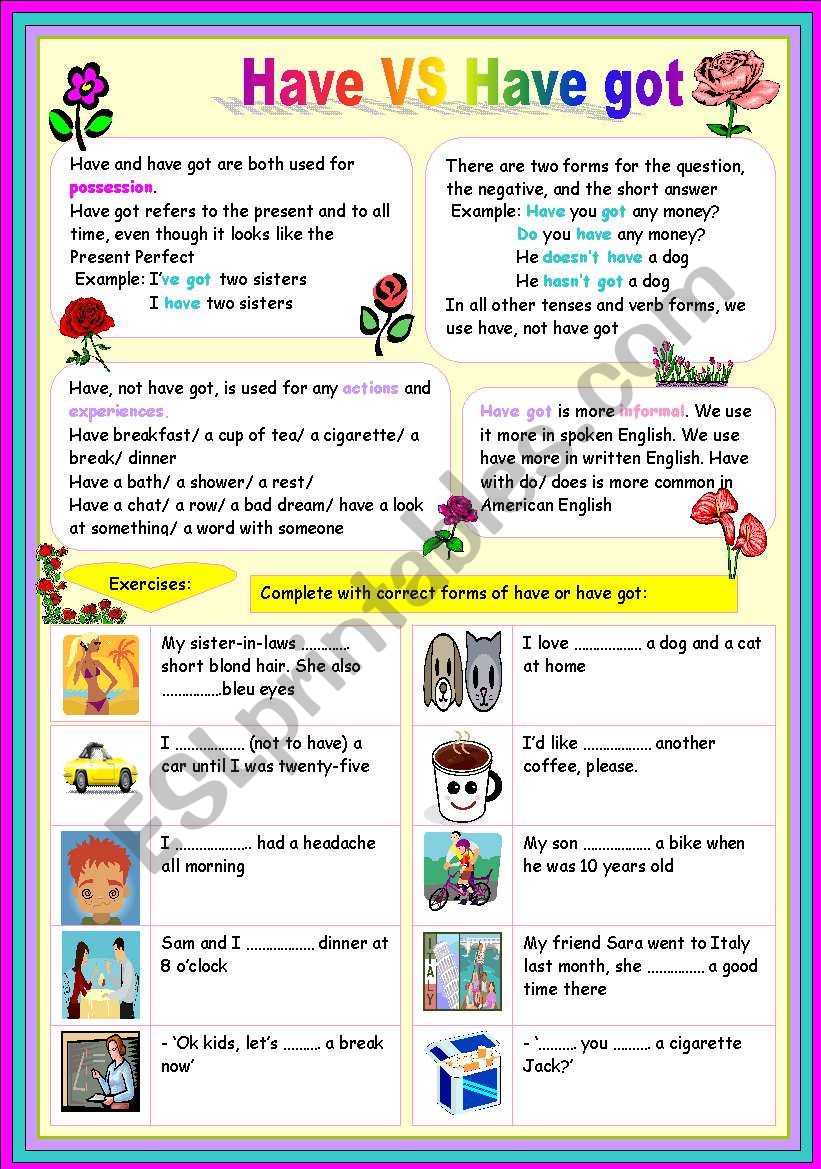
to have or to have got ESL worksheet by ben 10
37 I have looked through several questions and answers on EL&U, and often there is an indication that American English prefers "have" while British English prefers "have got". In addition, there are several references to "have got" being more informal than "have" (e.g.: When to use "have" and "have got", "Do you have" vs "Have you got" ).

Havehas got (Grammar) Ficha interactiva Como aprender ingles basico, Lecciones de gramática
Key Takeaways. We use both "have" and "have got" to express possession or ownership. "Have got" is more casual and common in British English, while "have" is preferred in American English. "Have" is universally accepted in both formal and informal contexts. Have vs.

English Grammar Have and Have Got ESLBUZZ
How to use it Use have for I, you, we and they. Use has for he, she and it. We can contract the verb, especially when we're speaking. I have got long hair. = I've got long hair. He has got a new computer game. = He's got a new computer game. We have got a rabbit. = We've got a rabbit. For negatives, use not after have or has.